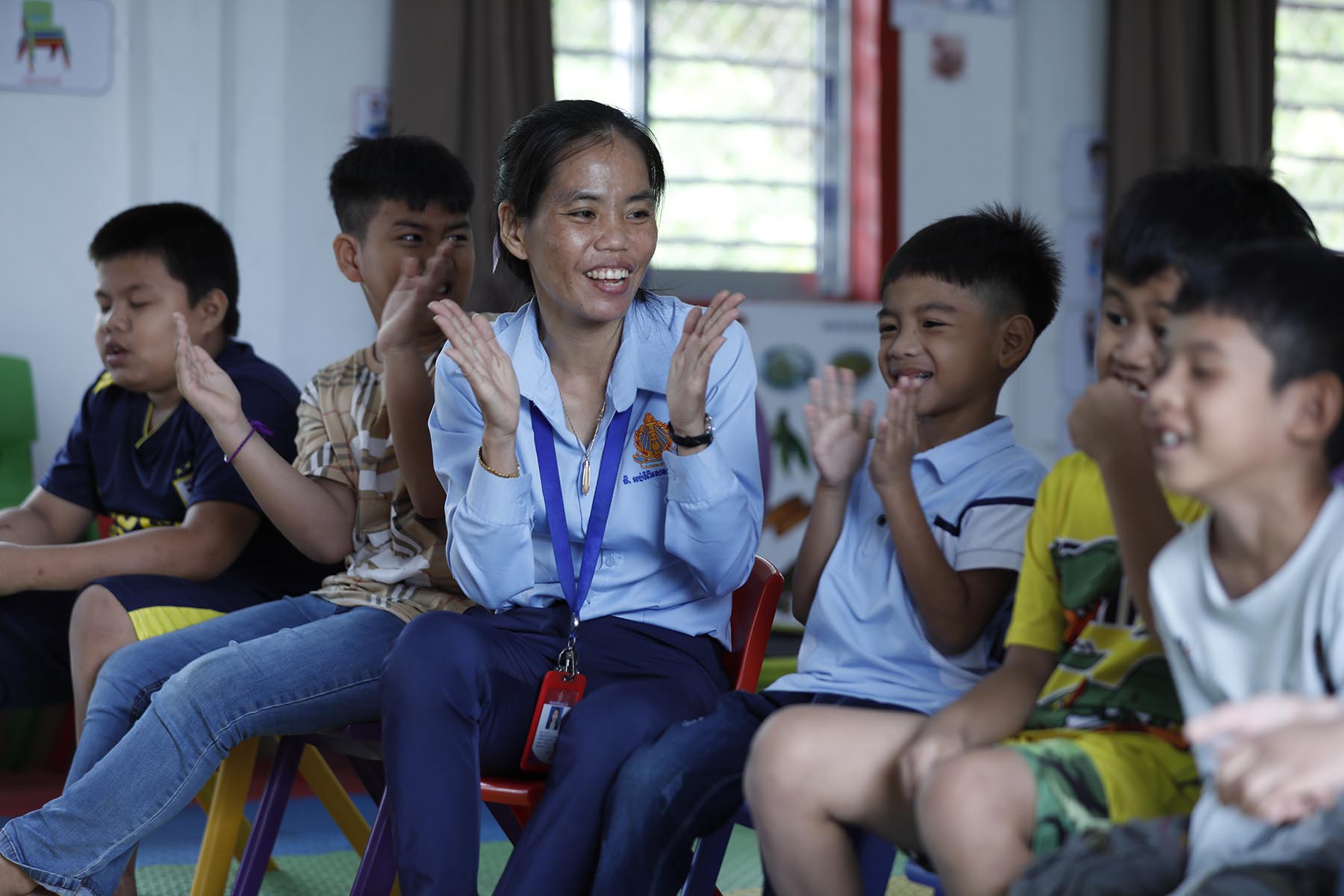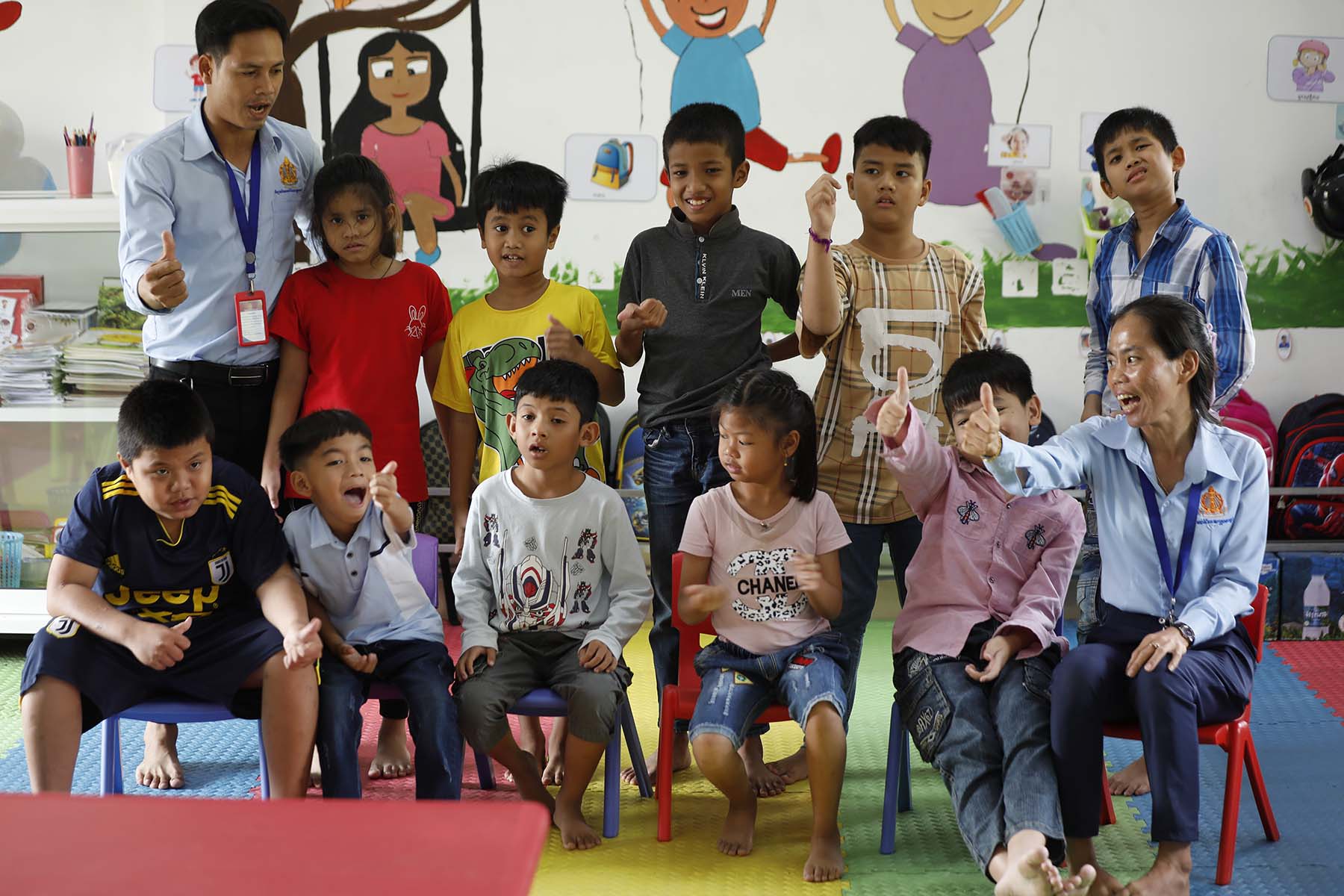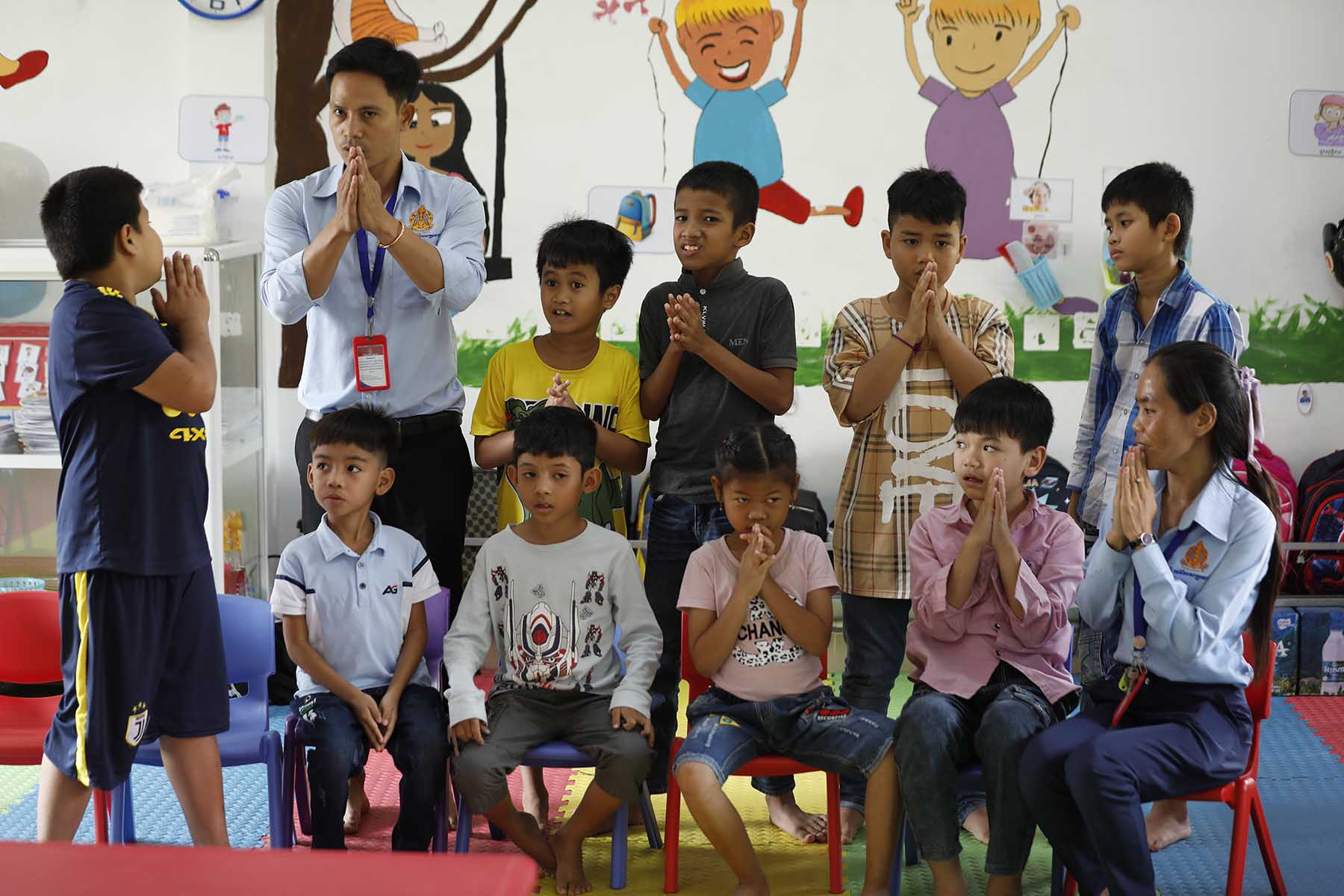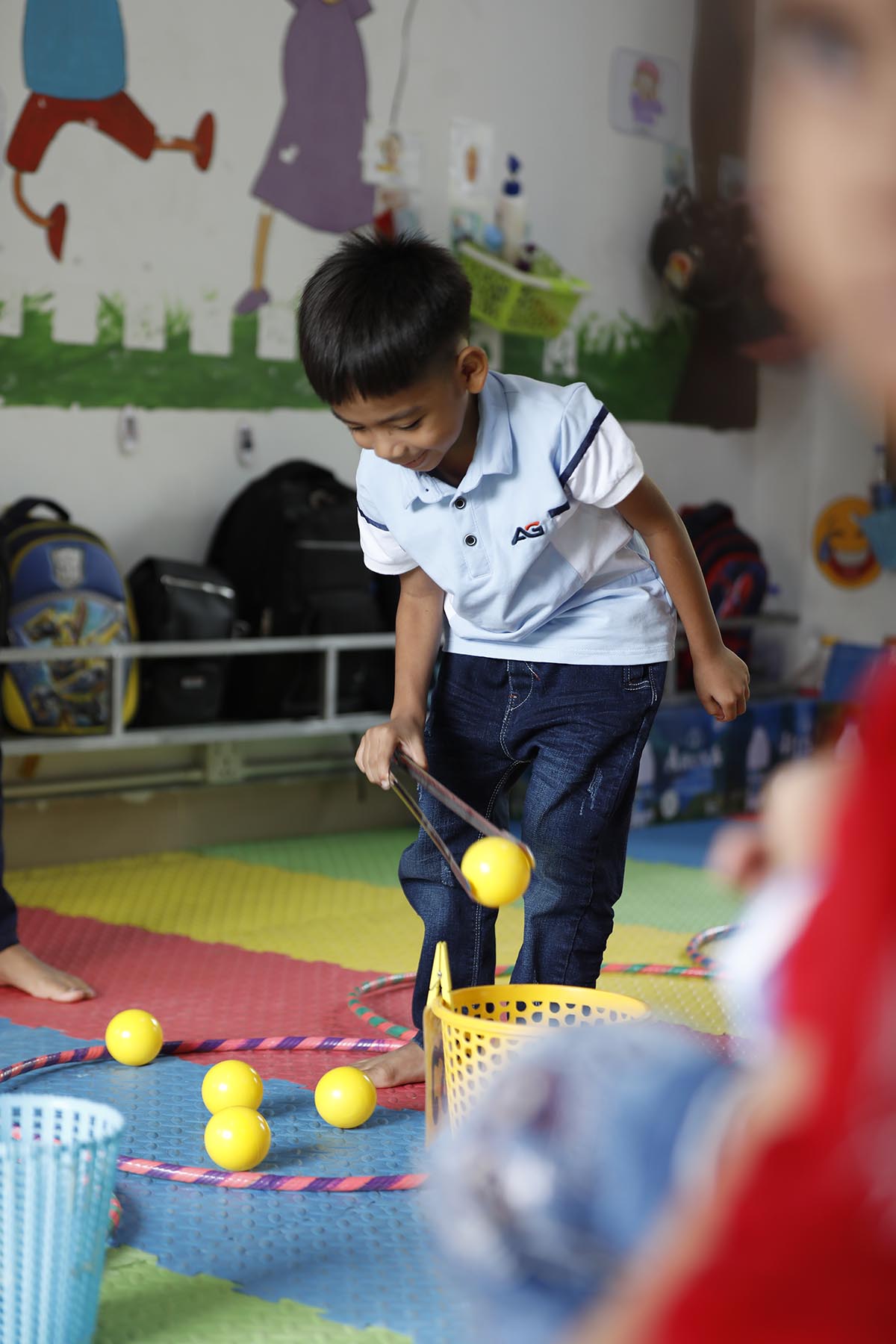Kandal: Noun Theavy teaches autistic children at Takhmao Special Education High School. She tells her story of what she needed to do to be the best she could for the children. It took her sometimes, but once she accomplished what she set out to do, it was quite fulfilling.
Noun Theavy knew that she wanted to contribute to society after she completed her education, but she did not know how until she went to Takhmao Special Education High School after years of volunteering at different Non-Governmental Organizations. She was taken aback of what she saw at the school, but instead of discrimination, she felt pity and the need to help them.
She said, “When I finished my studies, I thought after my studies, I wanted to contribute to society. I asked myself what should I do in order for me to contribute to society? I heard about NGOs for persons with disabilities a lot and so I applied to many … I heard that this school was looking for staff. So I applied. I applied when a teacher here was leaving, and so they were looking for new staff urgently. They saw that I had a lot of experience with children but I never worked with children with disabilities, only children without disabilities. So I tried. When I first started, I was scared when I saw them. First, when they walked towards me, came to hug me, or hold on to my legs. I was scared. I was not used to seeing children drooling, or running around with their arms all over. I had never seen children acting like that, so I was scared. But I did not have hate or disdain. It’s just that I wasn’t used to it, or close to the children yet … When I started, I sat and watched them. When I watched them, I thought these children should not be discriminated against, but instead people should have sympathy for them.”
She added, “When I continued to give them affection and warmth back and forth, I begin to understand their needs even more. Later, my supervisor asked how I was feeling. Before I said I was only giving it a try, but now I no longer think I was giving it a try. I love this work because I think I can help them.”
Noun Theavy said she studied and researched what she could because it was difficult at first.
She said, “I don’t have a lot of experience [with special needs children] so I learned by myself on how to teach the children successfully, what do they do? First, I learned from my supervisor. Second, I learned from the people who worked here before me. Third, I learned directly from the children [on what they need.] When I have free time, I research.”
She also noticed that the children’s love language is different from what parents are used to giving them. She encourages parents to spend more time with their children to help them grow.
She said, "In the beginning, when I first got them [as my students], they ran everywhere and cried because they did not know me. But later, because I kept hugging them and playing with them, getting them to count their fingers and play. After a period of time, they became attached to me. So when they come to study, they love me more than they love their parents because their parents, sometimes… I’m not saying they don’t love their children, they do, but they overlook the little things that matter. After coming back from work, they give money to the children, have a nanny look after them, but they don’t take the time to show affection to the children. For example, after coming back, they play with their phones and get the children to play with their phones too, and say they love the children. In reality, that’s not a gesture of love for the children. To show love to the children, the parents already spent the whole day outside, and so when they come back, they should call the children over to have a conversation about their day. Ask things like how is the school and so on. The children might not be able to answer but they can understand.”
She recalls one particular student who would never speak, but as she continued to persevere and get closer to the children, her hard work finally paid off.
She said, “I persevere, for example, there was a child who didn’t speak but understood what you were saying. I would ask him a question and answer by myself. For example, I’d say, “Kavalan.” “Yes, teacher.” I call him and answer myself. He doesn’t speak and has never even said the word “mom.” But I continued to try speaking with him. I tried for many months, and then one day I called him “Kavalan” and then he answered “Yes” which really surprised him. He had never even heard his own voice before. I was excited and so was he. We hugged each other and cried tears of joy. We were both overjoyed. That was a big encouragement for me to continue teaching here.”
The love and affection this teacher showed her students has helped them grow immensely. Every child deserves to be love and given the opportunity to play, study, and grow without discrimination.
"This independent article/video is part of a World Vision International Cambodia - EAC initiative to ensure children are better protected. Views expressed are purely the author's and may not necessarily reflect World Vision's position."

























